Victims of terrorism: symbols of democracy
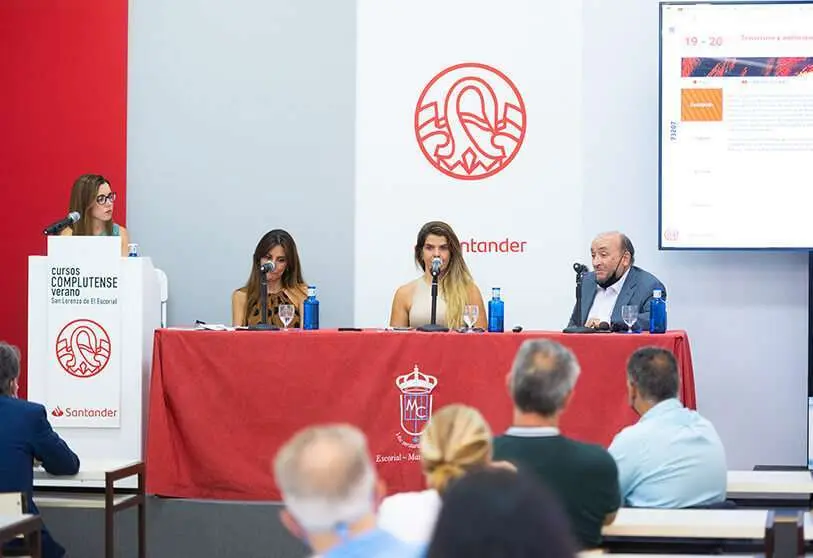
Attacks take people's lives, wound them, break up families and tear away in the most violent and cruel way possible the possibility of building and creating a life. The voices of the victims of attacks are the voices of our society and as such deserve the respect and affection of all. This type of event, in this case, organised jointly by the Victims of Terrorism Foundation and the Victims of Terrorism Memorial Centre, honours and pays tribute to the voices of those who are no longer with us and continues to democratise a society that must not be condemned to forget.
Terrorism transcends politics, "killing for the sake of killing and doing evil, that is terrorism, it is an empty message" recalled General Navarrete. According to the data provided by the Ministry of the Interior, 1,421 people have been victims of terrorism in Spain and on this occasion, in the second part of the course "terrorism and counter-terrorism in times of pandemic and post-pandemic", three families were invited to participate by giving their testimony as victims of jihadist terrorism who had suffered their relatives
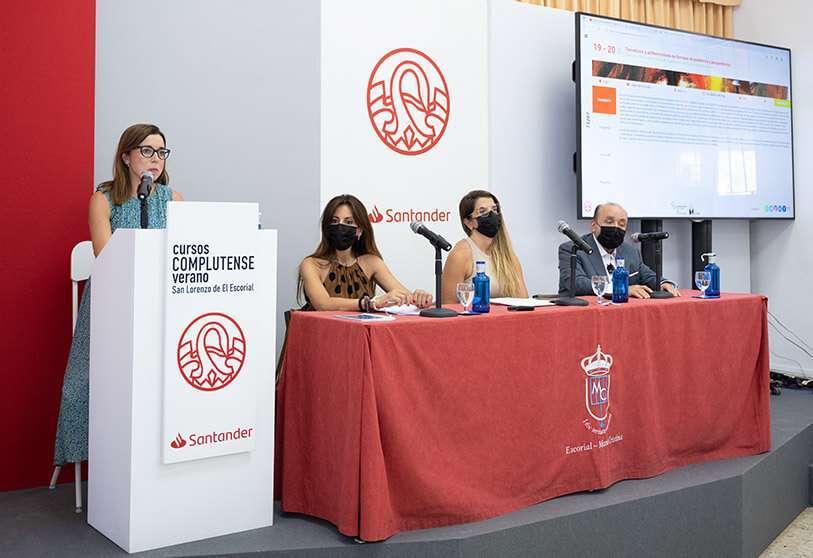
First it was the turn of Juan Francisco Benito, father of Rodolfo Benito Samaniego, murdered in the Atocha bombings in Madrid on 11 March 2004 along with 191 other people. Juan Benito recounted the confusion among the people of Madrid that day at 8 a.m., when two bombs had already exploded on two trains at Atocha.
"That day, 11 March, a day like any other, the day went by normally, when Iñaki Gabilondo's voice on the radio said that there had been an incident in Atocha, minute by minute the news became more and more important until within half an hour there was already talk of attacks at various stations," he recalls. "My first reaction was to call Rodolfo, those are the minutes when you start to feel fear, in the meantime I speak to my son Alex and he says he can't reach him either".
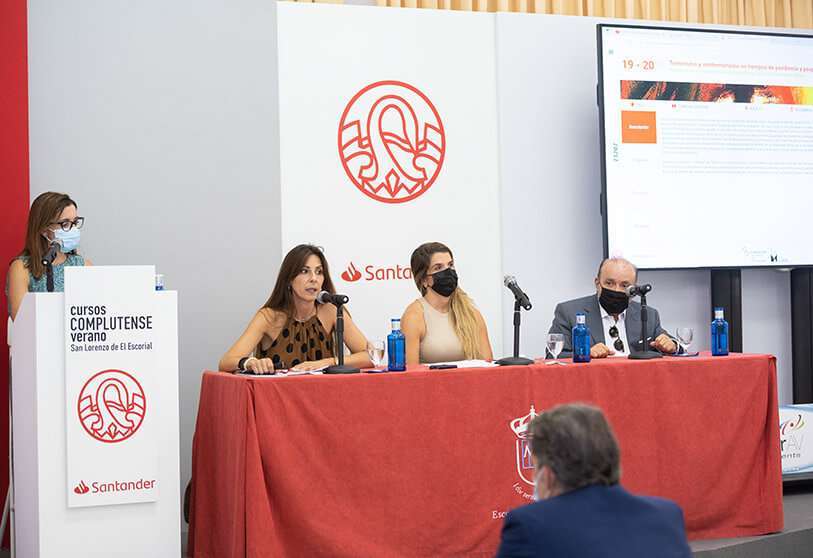
Juan went on to say that "in a moment of tension I went to Atocha, Madrid had collapsed, at that moment there was already talk of deaths and injuries. When I arrived at Atocha it was around 9 a.m. and the police command was already talking about an attack".
"All those who could not locate the relatives were taken to the IFEMA fairgrounds where the information service had gathered to help the relatives," he says. "There we went to a room in a nearby hotel and in a search that we had been doing since 8am until 3am we were told that Rodolfo was downstairs".
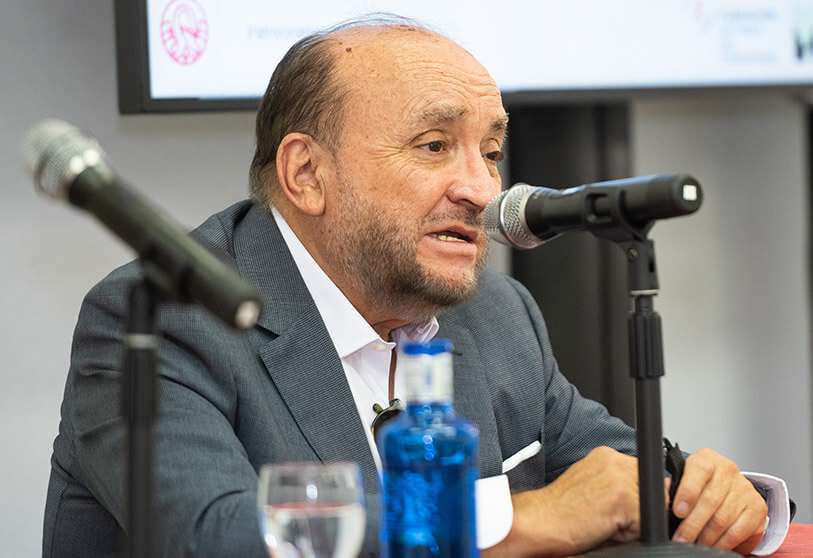
"Both my wife and I didn't have the courage to go downstairs, with the desire to keep alive the memory of what my son was like, I didn't go downstairs, neither I nor his mother (...) you remember so many things... he was born quickly and he left quickly, he was born quickly because he was born at home without doctors, without anything and he died in an instant".
After the attack, his family decided to continue to keep his memory alive by creating the Rodolfo Benito Samaniego Foundation, an institution that seeks to recognise the victims of terrorism and "contributes to spreading his memory, as well as the values of peace, freedom and democracy". "The foundation that today gives us the joy that Rodolfo, who is the one who pushes us day by day with his smile, has led us to maintain his values through the foundation," he concludes in an emotional voice.
The event also welcomed Gema de los Ríos, wife of the Spanish policeman killed at the Kabul Embassy in 2015, Jorge García Tudela, and Estefanía Vera, the wife of another of the policemen killed, Isidro Gabino Sanmartín.
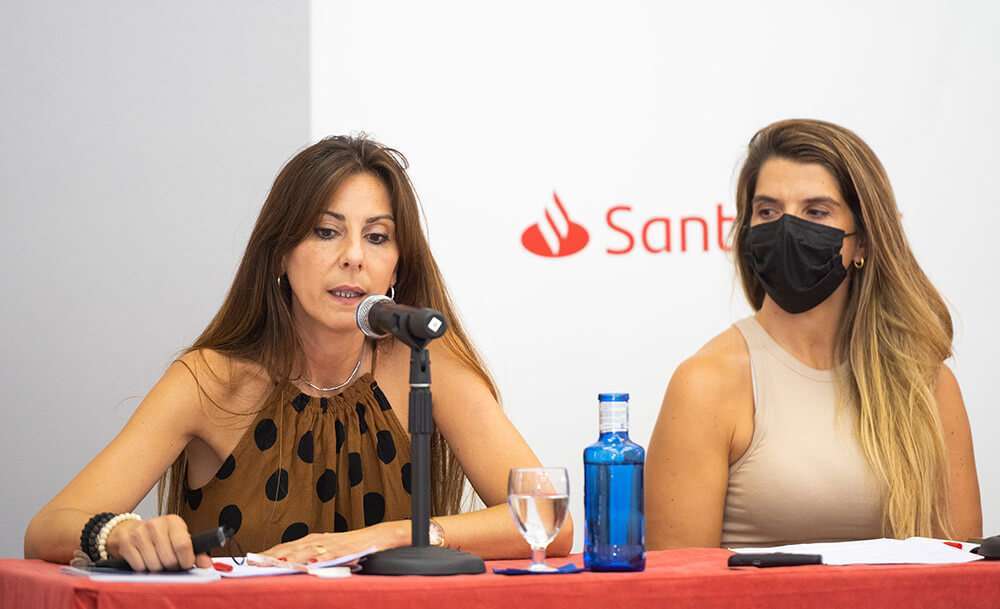
Almost six years ago, on 11 December 2015, a car bomb was placed at the gates of the Spanish Embassy. The explosion produced a shockwave and created a hole in the vicinity of the chancellery through which a group of jihadist terrorists managed to enter the building armed with assault rifles and hand grenades. The attack on Kabul lasted twelve hours and killed Jorge, "Gabi" and 10 Afghan policemen.
"That day I was taking my young son to a football match and that's when I received the first call, I was alerted that something was happening. At that moment I tried to isolate my children, but at the same time I started phoning all my colleagues and searching the internet to find out what had happened," recalls Gema.
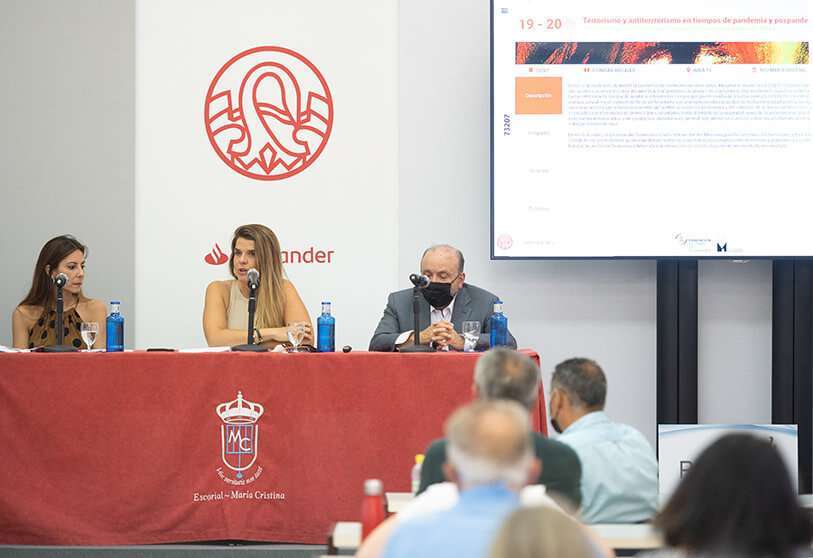
"At 8pm, the CNI called me and told me that the embassy had suffered an attack, that I shouldn't worry but that the operation was still open. At 4 o'clock in the morning there was a knock on my door and two uniformed people and one of Jorge's colleagues were there, I knew something had happened and I closed the door, I didn't want them to come in or hear anything. I had an anxiety attack, but I was lucky that from the very first moment SAMUR was able to attend to me".
According to the information he received, "that day Jorge was in his rooms, it was Friday and he was resting in his rooms, the shockwave reached him because his room overlooked the street. He went out and met a terrorist who shot and wounded him".
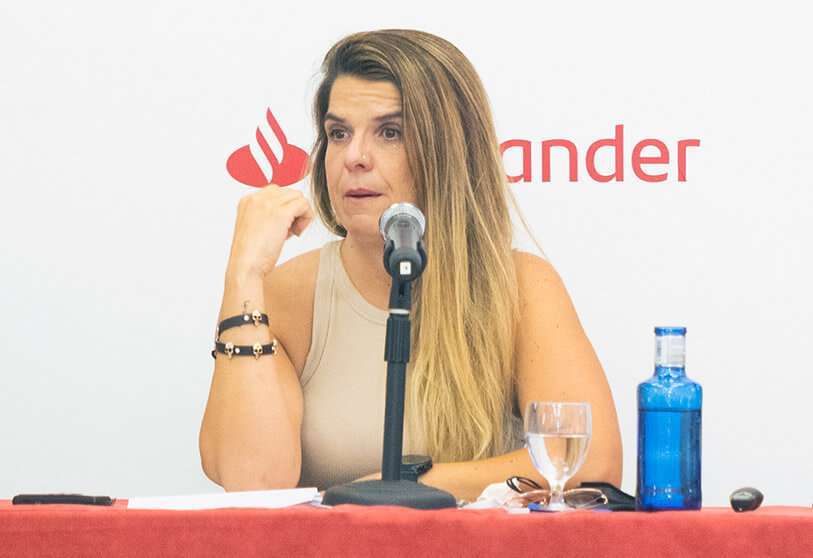
Gema, a mother of two, talks about the moment when her children heard the sad news: "My eldest son woke up and came to me and I told him to always remember how much his father loved him. He now suffers from post-traumatic depression, which is difficult to live with as a teenager. On the other hand, she remembers how her youngest son behaved "with incredible maturity, he hugged me, got dressed and we left for Madrid". Now Gema confesses that the little boy is suffering from panic attacks and anxiety.
On the other hand, Isidro's wife, Estefanía Vera, says that in the attack "Gabi couldn't get out. The terrorists were upstairs and they shot him, he was bleeding to death for hours and they couldn't get in to help him. After hours "they put him in a van and on the way to the hospital he died".
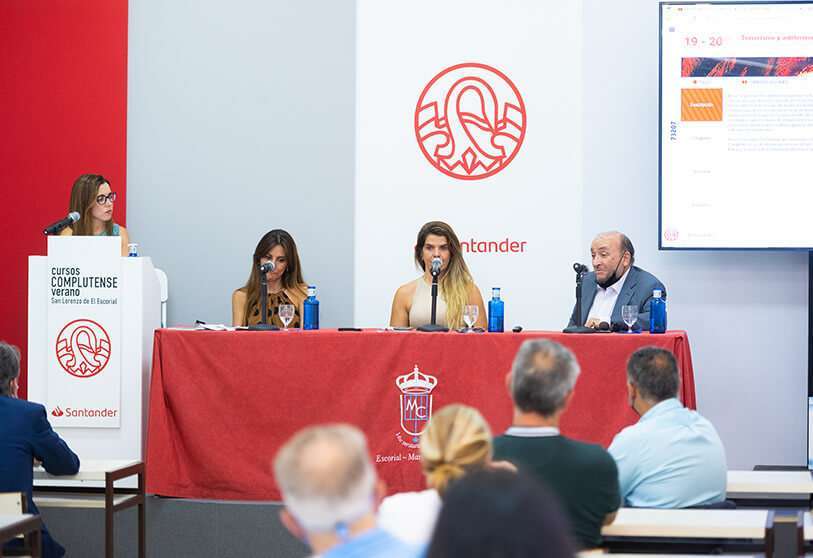
Estefanía was called and informed of the sad incident "they told me that Gabi had died and that the police were coming to make it official. At first you don't believe it, when they say that reality exceeds fiction, that's how it is. When I really became aware of it was when I was in Madrid and they asked me if I wanted to say goodbye to him, I didn't believe it, we had been together for 16 years".
"At that moment I wasn't aware that I had a great depression. I stayed in León, my son was 6 years old and I didn't even feel like getting up. After that I realised that I had to get out of there and fight. I went on a trip for two months, alone, but then I came back with the desire to educate and be with my child, before that I didn't feel like anything". Now she says that her son "sometimes lives with reluctance and a lack of enthusiasm, as he often doesn't make an effort because he says it's not worth it if we are going to die".
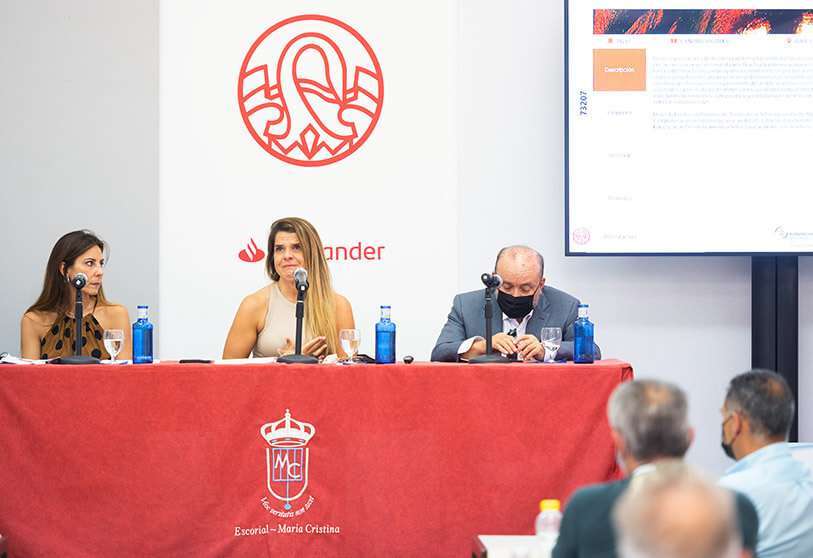
On the other hand, both agree that "the state funeral was memorable and all the political parties came together to attend it". Gema affirms that afterwards "what remains of those days I have had to reconstruct because I was under medication, I have photographs and blurred images in my mind of the situation".
This attack has not been without controversy as the victims claim that the embassy was not in the safe zone and the most obvious proof is "that the ambassador or the diplomats did not sleep there. The ambassador lived in the security zone," Gema complains.
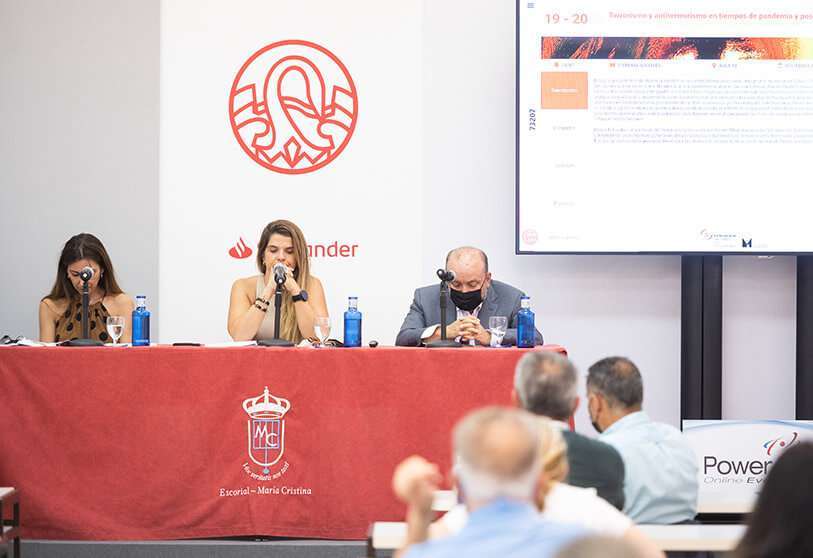
Seventeen years have already passed since 11-M, while six years have passed since 11-D. It is society's duty not to forget to unite the population in the preservation of human rights and democracy. Tributes such as these remind both them and civil society that our duty in democracy is not to forget what terrorism takes away. As the journalist José María Calleja said in an interview in El Mundo in 2006: "The victims are a human and political heritage of democracy and we can never thank them enough".







